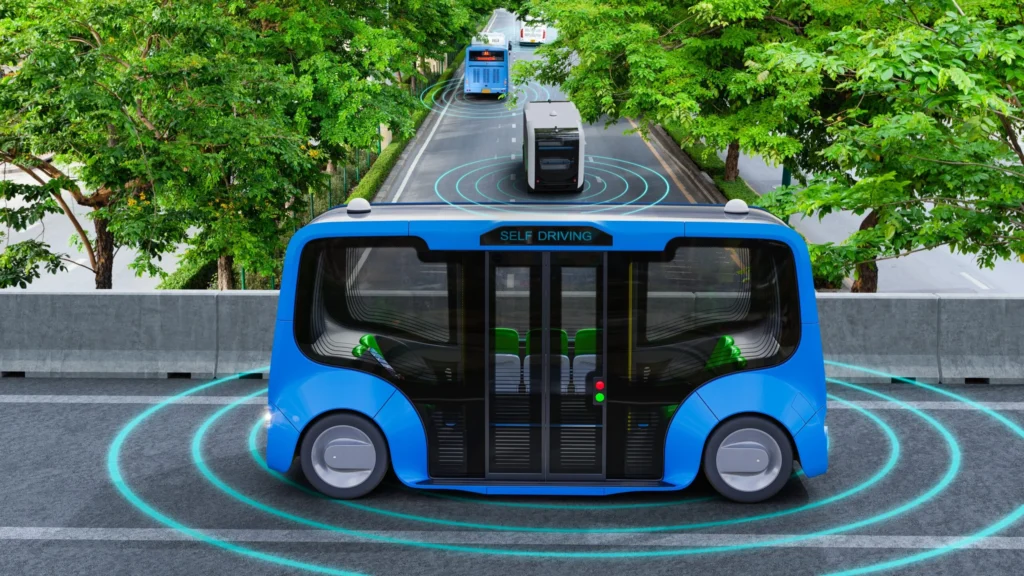The transformation of urban mobility is a significant trend shaping the future of transportation, particularly with the rise of car sharing services. As cities become more crowded and congested, people are turning to car sharing as a convenient and cost-effective alternative to traditional car ownership. This shift in behavior is not only impacting the way people get around, but also influencing the development of new technologies and business models in the transportation industry. The future of car sharing trends is closely tied to the concept of shared mobility, which encompasses a wide range of options such as ride-hailing, bike sharing, and even autonomous vehicles.
One of the most intriguing aspects of the transformation of urban mobility is the potential for car sharing to reduce traffic congestion and decrease the environmental impact of transportation. By promoting the use of shared vehicles, cities can potentially reduce the number of cars on the road, leading to less traffic and lower emissions. Additionally, the integration of car sharing with public transportation systems offers a seamless and efficient way for people to move around urban areas. As technology continues to advance, the future of car sharing may also include innovations such as electric and self-driving vehicles, further revolutionizing the way people think about mobility.
The Rise of Car Sharing Services
Car sharing services have been steadily gaining popularity in urban areas as an alternative to traditional car ownership. These services allow individuals to rent vehicles for short periods of time, providing convenience and flexibility for urban dwellers who may not need a car on a daily basis. With the rise of smartphone apps and advanced booking systems, car sharing has become more accessible and user-friendly, contributing to its increasing adoption.
Furthermore, the environmental benefits of car sharing, such as reduced emissions and congestion, have also contributed to its growth. As cities continue to face challenges related to traffic and pollution, car sharing presents a sustainable transportation solution. In the future, we can expect to see even more innovative car sharing models and partnerships with public transportation systems to further integrate these services into urban mobility.
Electric and Autonomous Vehicles in Car Sharing
The future of car sharing is closely tied to the development and adoption of electric and autonomous vehicles. As technology advances, electric vehicles are becoming more accessible and affordable, making them an attractive option for car sharing fleets. Their lower operating costs and reduced environmental impact make them a compelling choice for car sharing providers looking to offer sustainable mobility solutions.
Similarly, the emergence of autonomous vehicles holds great potential for the car sharing industry. Self-driving cars could potentially be deployed and shared among users, eliminating the need for a dedicated driver and further reducing the cost of car sharing services. As these technologies continue to mature, we can expect to see a significant shift towards electric and autonomous vehicles in the car sharing market.
Integration with Multi-Modal Transportation
Future car sharing trends will likely involve greater integration with multi-modal transportation options, such as bikes, scooters, and public transit. Car sharing companies are already exploring partnerships and integrations with other modes of transportation to offer users a seamless and comprehensive mobility experience. This integrated approach can help address the first and last-mile challenge, providing a more efficient and convenient alternative to private car ownership.
By combining different transportation modes, users can choose the most suitable option for each leg of their journey, reducing reliance on personal vehicles and alleviating urban congestion. This trend towards multi-modal integration aligns with the broader shift towards Mobility as a Service (MaaS), where various transportation services are bundled into a single, accessible platform for users.
Personalized and On-Demand Mobility
The future of car sharing is expected to prioritize personalized and on-demand mobility solutions. With advancements in data analytics and user behavior tracking, car sharing services can tailor their offerings to individual preferences and needs. This may include options for specific vehicle types, amenities, and subscription models that align with users’ lifestyles.
Furthermore, on-demand mobility will become a key focus, allowing users to access car sharing services at any time and from any location. This flexibility and immediacy are made possible through advanced booking systems and the widespread availability of shared vehicles in urban areas. As the demand for personalized and on-demand transportation grows, car sharing providers will continue to innovate their offerings to meet these evolving needs.
Sustainability and Environmental Impact
As sustainability becomes an increasingly important consideration, future car sharing trends will place a strong emphasis on reducing environmental impact. This includes not only the integration of electric and autonomous vehicles but also the implementation of eco-friendly practices in the operation of car sharing fleets. From vehicle maintenance to energy-efficient charging infrastructure, sustainability will be a guiding principle for car sharing providers.
Additionally, car sharing services are likely to engage in initiatives that promote eco-friendly behaviors among users, such as incentivizing carpooling and promoting responsible driving practices. By prioritizing sustainability, the car sharing industry can contribute to the overall goal of creating greener and more livable urban environments.
Flexible Pricing and Subscription Models
Future car sharing trends are expected to feature increasingly flexible pricing and subscription models to cater to diverse user needs. This may include options for pay-as-you-go usage, monthly subscriptions, or tiered membership levels with varying benefits. By offering a range of pricing structures, car sharing services can appeal to a broader user base and accommodate different usage patterns.
Furthermore, the integration of car sharing into larger mobility platforms may enable seamless payment and usage across a variety of transportation services. This interconnected approach can provide users with greater convenience and cost savings, further incentivizing the adoption of car sharing as a primary mode of urban mobility.
Enhanced User Experience and Technology Integration
Technology will continue to play a pivotal role in shaping the future of car sharing, with a focus on enhancing the user experience and streamlining the reservation and usage processes. From user-friendly mobile apps to advanced vehicle connectivity features, car sharing services will prioritize seamless and intuitive interactions for their customers. This may include features such as keyless entry, in-vehicle infotainment, and real-time vehicle tracking.
Moreover, the integration of emerging technologies such as augmented reality (AR) for vehicle location and smart city infrastructure for optimized car sharing operations will further elevate the user experience. By leveraging these advancements, car sharing providers can deliver a more convenient, efficient, and enjoyable mobility solution for urban residents.
Regulatory and Policy Considerations
As car sharing continues to evolve, regulatory and policy frameworks will play a crucial role in shaping the industry’s trajectory. Local and national governments will need to address various aspects, including parking regulations, vehicle standards, and insurance requirements specific to car sharing operations. Clear and supportive policies can foster the growth of car sharing while ensuring safety and fairness for all stakeholders.
Furthermore, collaboration between public authorities and car sharing providers can lead to initiatives that promote sustainable and equitable urban mobility. This may involve incentives for shared and electric mobility, dedicated car sharing parking zones, and data sharing for urban planning purposes. By proactively engaging with regulatory and policy considerations, the car sharing industry can establish a solid foundation for its continued development.
| Trend | Description |
|---|---|
| Electric Car Sharing | Increasing use of electric vehicles for car sharing to reduce emissions and environmental impact. |
| Autonomous Car Sharing | Growth of self-driving car sharing services for convenient and efficient urban mobility. |
| Peer-to-Peer Car Sharing | Rise of platforms connecting car owners with individuals in need of short-term vehicle rentals. |
| Integrated Mobility Services | Expansion of integrated platforms offering various transportation options, including car sharing, public transit, and bike sharing. |



